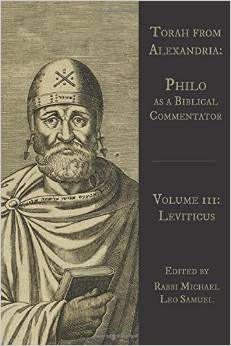CHULA VISTA, California — One of the best-known blessings Orthodox Jews recite every day is the blessing, “Thank you God for not making me a woman.”
The recent transformation on the cover of Vanity Fair’s 22-page cover story featuring Caitlyn Jenner, formerly known as Bruce, raises a number of fascinating questions pertaining to Halacha as well as Jewish ethics.
To begin with, persons wishing to undergo transsexual surgery are a minority—in fact one per million men and even less with regard to women. Historically, such surgery began in Europe in the 1930s and in the United States in the 1960s.
Historically, the subject of the saris (eunuch) is recorded about forty times in the Tanakh. Ancient societies often positioned the eunuch as court officials, military commanders, and other positions of high authority (Gen. 37:36; 2 Kgs. 9:32; 25:19; Esther 1:10). In the case of Potiphar, he was married—and his status as a eunuch probably became the principle reason Madam Potiphar fooled around when he wasn’t looking (see Gen. 39ff.).
Traditional Judaic texts raise a number of issues involved:
- The prohibition against castration pertains to human beings and animals (Lev. 22:24; cf. BT Shabbat 110b-111a)
- The prohibition against wounding or crushing genitalia entering the Jewish community (Deut. 23:2).
- The prohibition against cross-dressing, which would some scholars argue includes acting like someone of the opposite sex (Deut. 22:5).
According to the 13th century anonymous author of the famous Sefer HaChinuch:
- The Creator blessed all living beings, to be fruitful and multiply, and even commanded the male of the species of the human on this, that it might endure. Without this imperative, a species would eventually die, as would all of its kind. Therefore, if anyone who destroys the procreative organs of generation, demonstrates that this person cannot tolerate the work of the Creator and desires the destruction of God’s good world.”[2]
This question applies no less to performing the levirate marriage, which is now effectively been made null and void.
Traditionalist also wonder “Is intimacy with a transsexual permitted or not?’
In the case of a woman who undergoes the procedure, is she obliged to observe ritual circumcision?
Already, in Israel a practical question arose: A transsexual Jew was prohibited from praying with men in the men’s section, as well as in the women’s section! If Caitlyn were visiting Israel, which section would she attend services at the Western Wall?
In short, some Halachic scholars think that appearance is the driving issue here; ergo, if a man undergoes this procedure, then he is now exempt from performing all the precepts that are traditionally incumbent upon men. One notable Orthodox scholar who makes this point was Rabbi Eliezer Waldenberg, who served as a judge in the Supreme Rabbinical Court of Jerusalem. [3]
Of course other scholars differ and think that the transsexual surgery does not impact the halacha in any meaningful way.—Caitlyn is still considered “Bruce” in terms of fulfilling his manly obligations. According to this perspective, human sexuality is something that is fixed and rigid.[4] Most notably, Rabbi David Bleich’s views offers a sober exposition of the more conservative Halacha perspective:
- The commandment, “A woman shall not wear that which pertains to a man, nor shall a man put on a woman’s garment” (Deut. 22:5) is not limited to the wearing of apparel associated with the opposite sex but encompasses any action uniquely identified with the opposite sex, proscribing, for example, shaving of armpits or dyeing of hair by a male.” In this vein, “a procedure designed to transform sexual characteristics violates the very essence of this prohibition.”[5]
In short, it is intriguing to note that in Jewish tradition, answers come and go, but a good question is an eternal constant. Some of the questions we discussed here in this brief article may be a good case in point. In any event, personal choices like this question are ultimately a matter of personal conscience–and each person must be true to him or herself. In any event, Jewish ethics demands that we never embarrass or shame any human being–which applies no less to transgender men and women.
As society continues to change, it is this writer’s view that Halachic responses will continue to evolve with time.
[1] See BT Sanhedrin 56b.
[2] Sefer HaHinnukh, No. 291.
[3] Tzitz Eliezer 2:78.
[4] R. Moshe Steinberg, Assia Vol. 1., p. 144; Nishmat Avraham Even HaEzer 44:3.
[5] David Bleich, Contemporary Halakhic Problems ( New York: KTAV & Yeshiva University Press) Vol. 1 – Page 100


 RSS Feed
RSS Feed
